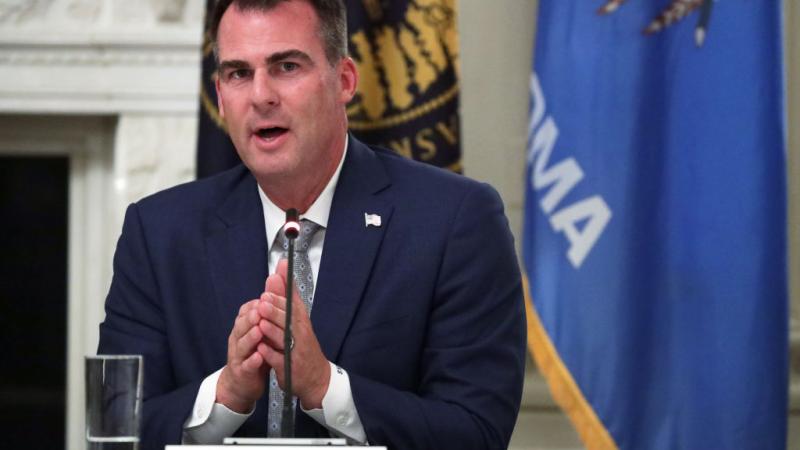State attorneys general split on reinstating Obama's race-based school discipline guidance
Conservative states argue the guidance is "illegal," while liberal states argue it doesn't go far enough.
Attorneys general in more than half the states are starkly divided on how to view alleged racial disparities in school discipline, filing competing briefs in a Department of Education proceeding that drew nearly 2,700 comments.
Arizona led a coalition of 15 states to oppose the reinstatement of the Obama administration's "disparate impact" guidance, which said statistical differences between the races in school discipline could serve as the basis for a federal civil rights investigation.
Michigan led an opposing coalition of 15 states to argue that the 2014 guidance should not only be reinstated, but expanded to include disparities in discipline by sex, sexual orientation, gender identity and disability.
Critics of the guidance, including a longtime member of the U.S. Commission on Civil Rights (USCCR), told the department that its evidentiary basis was "statistically illiterate" and had led to increased disorder in schools that withheld discipline to avoid federal investigation.
The Obama guidance was not only "illegal" but also "disastrous as a policy matter," Arizona Attorney General Mark Brnovich wrote in a comment joined by his peers in Alabama, Alaska, Arkansas, Georgia, Indiana, Louisiana, Mississippi, Missouri, Montana, Nebraska, Ohio, South Carolina, Texas and Utah.
Unlike Title VII of the Civil Rights Act, which prohibits employment discrimination, Title IV (school desegregation) and Title VI (race) use an intentional-discrimination framework, not disparate impact, according to the letter. The department "cannot 'effectuate' a provision by transforming it into something it's not."
The guidance led to "unlawful quotas" in school districts and the adoption of "a more permissive approach to misbehavior in schools," the letter said, citing a report by the Federal Commission on School Safety that accompanied the Trump administration's rescission of the guidance.
Not only did this create disorderly classrooms that harmed learning for the most marginalized students, but also led to assaults on teachers and stabbing and rape of students, according to submissions to the commission.
In a separate submission, Montana Superintendent of Public Instruction Elsie Arntzen fleshed out the alleged effect of disparate-impact theory in St. Paul, Minn., years before the 2014 federal guidance.
The school district paid $3 million to a consulting firm explicitly guided by critical race theory and agreed to insert "specialists" throughout the schools who "seemingly just talked to students" who were involved in disruptions and then returned them to class. Student violence spiked, teachers threatened to strike, school board members got kicked out, and the superintendent resigned, Arntzen said.
The Department of Education's request for information cited racial disparities in discipline but not whether "laxer school discipline ... was actually beneficial for students," ignoring countervailing data from disparate-impact policy trials in New York City and Philadelphia before the 2014 guidance, the AGs said.
They warned the feds that federal courts had long frowned on assuming discrimination plays a meaningful role in "statistical disparities" in education.
Michigan Attorney General Dana Nessel made the opposite case in a letter joined by peers in California, Delaware, District of Columbia, Illinois, Iowa, Maine, Massachusetts, Minnesota, Nevada, New York, Pennsylvania, Rhode Island, Washington state and Wisconsin.
The Obama guidance must be reinstated and expanded to help schools "meet their obligations under federal law to administer student discipline equitably," they said.
Critics of the guidance have wrongly characterized it as prohibiting all "exclusionary disciplinary practices" when it explicitly calls on using those practices as "a last resort" and only for "serious infractions," the letter said.
It cited a USCCR report that claimed black, Latino and Native American students receive more discipline and harsher and longer punishments, even though nonwhite students as a group and by race do not commit "more disciplinable offenses" than whites.
"This widely accepted finding is confirmed in numerous peer-reviewed social-science studies," the AGs said, alluding to criticism of the report's statistical validity by USCCR member Gail Heriot, who included her lengthy dissent in her submission to the Department of Education.
The letter cites research that exclusionary discipline practices are "inextricably linked to an increased rate of incarceration." Going to a school with "above average use of suspension" increases the chances of incarceration by 17% across all students and 20% specifically for nonwhite students, it said.
Federal data has long revealed "intersectional disparities based on race and sex," the letter said, citing black girls as the only female group across all races and ethnicities to have a discipline disparity. Black students with disabilities also face disproportionate disciplinary rates.
The AGs also claim that gay and transgender students are "subject to more severe discipline" than heterosexual students and those who identify with their sex. Such discrimination "intersects with, and is heightened by, a student's race."
They called on the feds to collect data assessing disparate impact on gay and transgender students and how the discriminatory discipline affects them. The department would have to order schools to turn over this data to measure it.
The department "must leave no room for doubt — discrimination in all forms through school discipline is prohibited and will not be tolerated," the AGs said.













